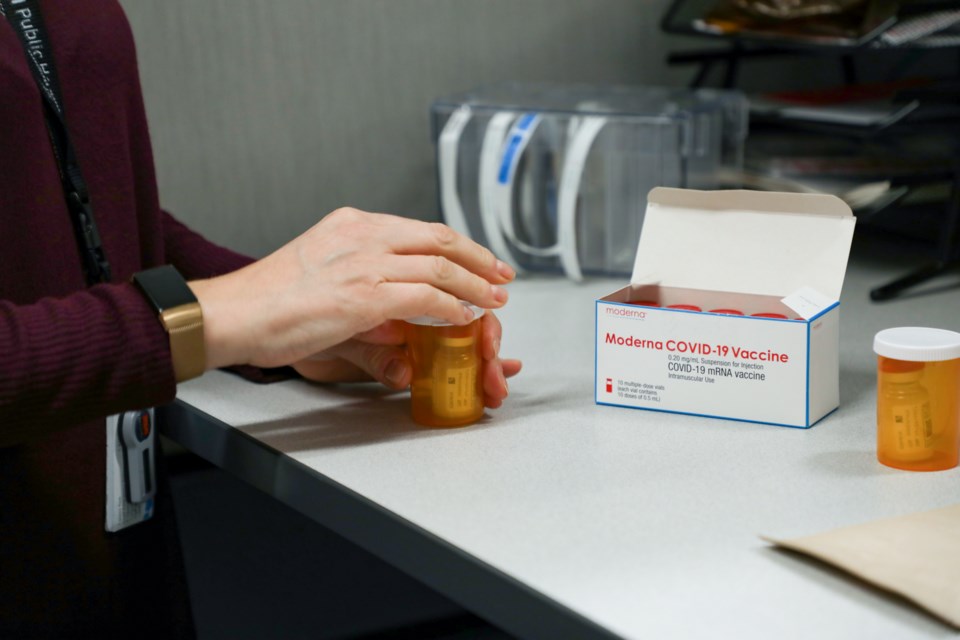York Region’s COVID-19 unvaccinated municipal employees are pushing back as municipalities threaten to fire them by Jan. 5.
The anonymous group of employees called “Stand Up For York Region” sent out a message to regional leaders and media outlets Nov. 24 challenging regional vaccination mandates, and asking for alternative measures like regular testing or working from home.
"These are employees of upwards of 10 and 20 years of service with the Region, who have never faced any disciplinary action, who love their jobs and are ready and willing to work," the group said, asking for senior leaders to change the policy. "We understand your desire and legal obligation to protect all employees, but a one-size-fits-all approach is not the way to accomplish this."
York Region and Newmarket both decided to implement mandatory staff vaccination policies in August, asking employees to be fully vaccinated by Nov. 1. In the region’s case, it put employees who have not confirmed their vaccination status on unpaid leave Nov. 22, with plans to terminate them Jan. 5 if they do not get vaccinated. It said 100 employees, or 2.3 per cent, were fully non-compliant with the policy as of Nov. 25.
“While we appreciate some staff may not agree with the policy, the region is acting on our duty to protect the health and safety of all Regional employees," director of corporate communications Casey said. "Having all staff vaccinated provides an added layer of protection for employees’ families, the residents we serve, and the broader community."
The unvaccinated employees — who are remaining anonymous for fear of repercussion — could not specify their number backing the message, but said they also include employees from lower-tier municipalities with similar vaccination mandates. They said they should not be forced to take a COVID-19 vaccine and questioned its effectiveness.
“We aren’t asking people to agree with our choice, but it should be respected,” the group said in an email interview. “It's kindness and empathy that has gotten us this far in the pandemic. We ask for your empathy and respect in how we all get through this pandemic together."
The group argues that 50 religious exemptions were submitted, none of which were accepted. It questioned the mandatory educational session the region required for non-compliant employees, a self-directed 30-minute course. It said the presentation was lacking, and the region failed to answer follow-up questions.
The group’s list of provided questions included ones on side-effects and proof of effectiveness. But some of their questions did feature misinformation, like asking confirmation that the vaccines are not “mRNA gene-altering therapy” that will modify DNA, which they do not.
Casey said besides the educational session, the region provided staff with the most up-to-date information on vaccine safety, efficacy, and benefits since the rollout began in March 2021 and provided “ample resources to make an informed decision.”
As for religious accommodation, Casey said they are on a case-by-case basis, but there are limited circumstances under which an individual cannot receive a vaccine. Still, he said they issued 18 exemptions, for either medical or religious beliefs.
“Many religious organizations have issued statements that encourage COVID-19 vaccination for the health and safety of individuals and their communities,” Casey said. “Not every belief, opinion, expression, practice or matter of conscience is considered a creed under the Human Rights Code, nor would it automatically qualify staff for an exemption from the policy.”
The group has also argued that testing or home-based work should be a viable alternative, noting other organizations like school boards and York Regional Police are not mandating vaccines. The group said it feels York Region should cover the cost of testing, but given the option to keep their jobs, could pay.
In response, Casey said the region wants to take every precaution possible.
“Staff may be called back to work onsite at any time; ensuring they have their COVID-19 vaccine assists in expediting this process and reducing transmission in the workplace and in the community."
The group said it would work within its means to ensure fair treatment under its collective bargaining agreement. Some of them are unionized employees under CUPE 905.
“We are asking the employer to be reasonable just by offering testing as an alternative,” they said



